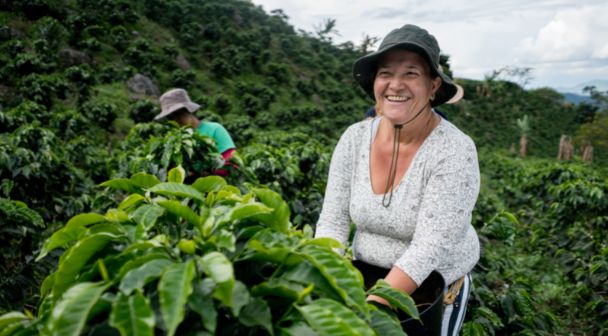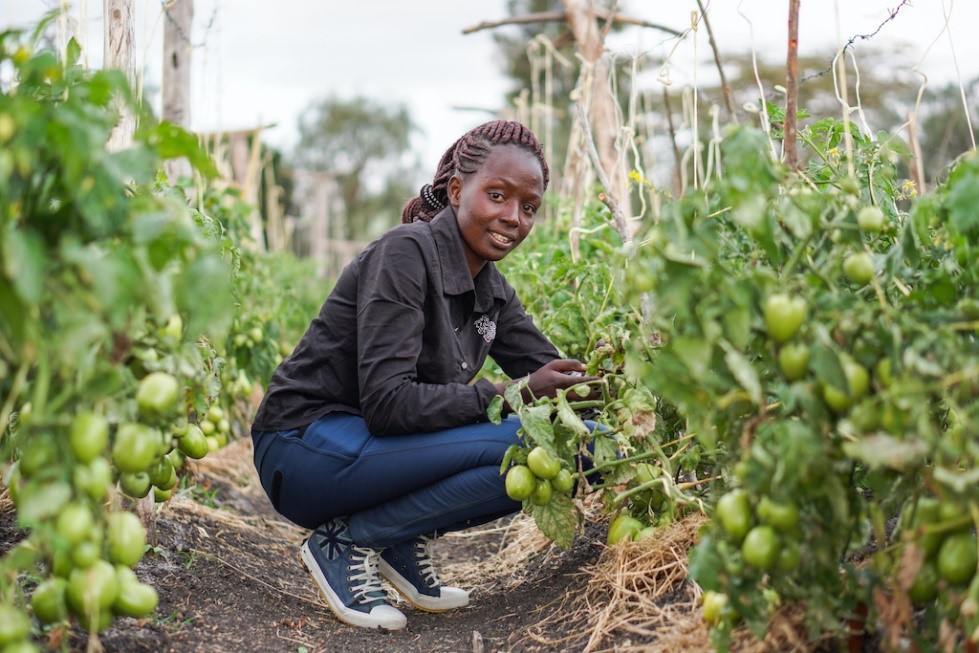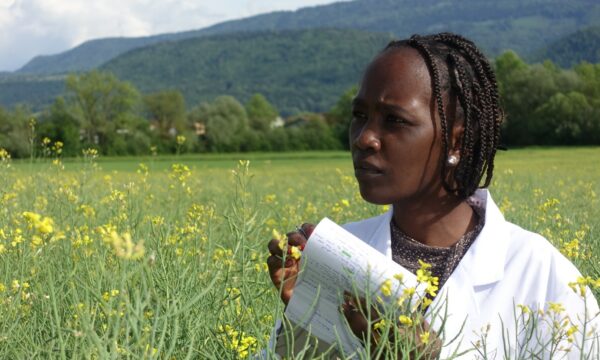Applications for two new Certificate of Advanced Studies (CAS) in Integrated Crop Management (ICM) are now open. CAS 2: ICM – Aspects of Implementation and CAS 3: ICM – Biological Control and Ecosystem Services, are the latest courses launched as part of a set of online programmes developed and run by CABI and the University of Neuchâtel in collaboration with partner institutions in Switzerland.

The first programme, CAS 1: ICM – Sustainable Production Practices, was launched last September and is currently running with a cohort of 22 students from 14 countries across Asia, Africa and the Americas.
What is ICM?
ICM is a sustainable agricultural production system that improves overall crop health with minimal impact on the environment. It optimizes yield and profitability and takes into consideration pest management, soil care, seed selection, crop nutrition, water management, rural economics, landscape management, agricultural policy and more. ICM is an important part of sustainable agriculture and these courses promote the adoption of sound crop management principles.
Who are the CAS-ICM programmes for?
Both the CAS 2 and CAS 3 programmes are valuable for scientists, teachers, extension officers, policy makers and post-graduate students who already possess a Bachelor’s degree or at least three years of relevant professional experience in a related field and wish to enrich their ICM knowledge. The topics addressed in this online course are of global relevance and candidates are welcome from any country.
For both courses, learning is based on the proven content and approaches from previous educational activities and professional experience from the past several years.
The educational experience gained from these will facilitate the acquisition of positions in both the public and private sectors, including government, research, universities, advisory services, NGOs and industry.
CAS 2: ICM – Aspects of Implementation
CAS 2 will facilitate exchange between international participants as they explore diverse considerations that are important – but not always obvious – in the field of ICM implementation. This programme addresses implementation issues that are crucial for the successful adoption of ICM practices by farming communities and for sustainable food production.
The programme is structured around seven modules:
| Topic 1 | Topic 2 | Topic 3 | Topic 4 |
| Policy considerations | Agricultural System Implementation | Agricultural and Rural Economics | Agricultural Extension |
| Topic 5 | Topic 6 | Topic 7 |
| Gender in Agriculture Programmes & Rural Advisory Services | Experimental Design & Statistical Methods | Climate Change & Agriculture: Towards Climate-Smart Pest Management |
CAS 2 participants will enhance their ability to address critical agricultural issues, in particular recognising and dealing with obstacles and opportunities for ICM adoption in a wide variety of agricultural systems.
The CAS 2 programme is a post-graduate course that counts 10 credit points under the European Credit Transfer System (ECTS).

CAS 3 –Biological Control and Ecosystem Services
This programme takes a close look at ways to apply science-based practices that enhance, rather than degrade, ecosystem services that are crucial for healthy and productive agroecosystems. This learning journey includes a major emphasis on practices that promote biological control of plant pests while protecting vital species like pollinators.
The programme is structured around four modules:
| Topic 1 | Topic 2 | Topic 3 | Topic 4 |
| Prevention of Pest Problems | Green Direct Control | Classical Biological Control | Managing Landscapes |
CAS 3 participants will acquire a broader and deeper understanding of the options available to minimise the use of chemical pesticides, promote biodiversity and create more resilient agroecosystems. Participants’ enhanced capacity to analyse interactions of beneficial species (e.g. natural enemies, pollinators) in agricultural landscapes will better prepare them for promoting nature-based solutions in various agricultural systems.
The CAS 3 programme is a post-graduate course that counts 10 credit points under the European Credit Transfer System (ECTS).
How are the courses run?
The CAS 2: ICM – Aspects of Implementation and CAS 3: ICM – Biological Control and Ecosystem Services programmes are fully online and will run from September 2022 to June 2023.
Participants who successfully finish all three CAS programes can obtain a Diploma of Advanced Studies (DAS) on completion of an additional technical report.
How do I apply?
For more information on the programme and how to apply, please visit the University of Neuchâtel website.
The deadline for applications is 10th July 2022.
5 Comments
Leave a Reply
Related News & Blogs
Ask the tutor Q&A: Certificates in Advanced Studies in Integrated Crop Management
In this blog, Manfred Grossrieder, Integrated Crop Management Advisor for CABI, answers questions about the Certificates in Advanced Studies in Integrated Crop Management courses.
12 June 2024




Am interested in the course
Hello Emmanuel. Thank you for your interest. Please visit this website for more information and you can find the link to apply there too. https://www.unine.ch/icm/home/programmes.html
Am very interested in the course
Hello Martin. Thank you for your interest. Please visit this website for more information including how to apply. https://www.unine.ch/icm/home/programmes.html
Very nice and important topic I will apply